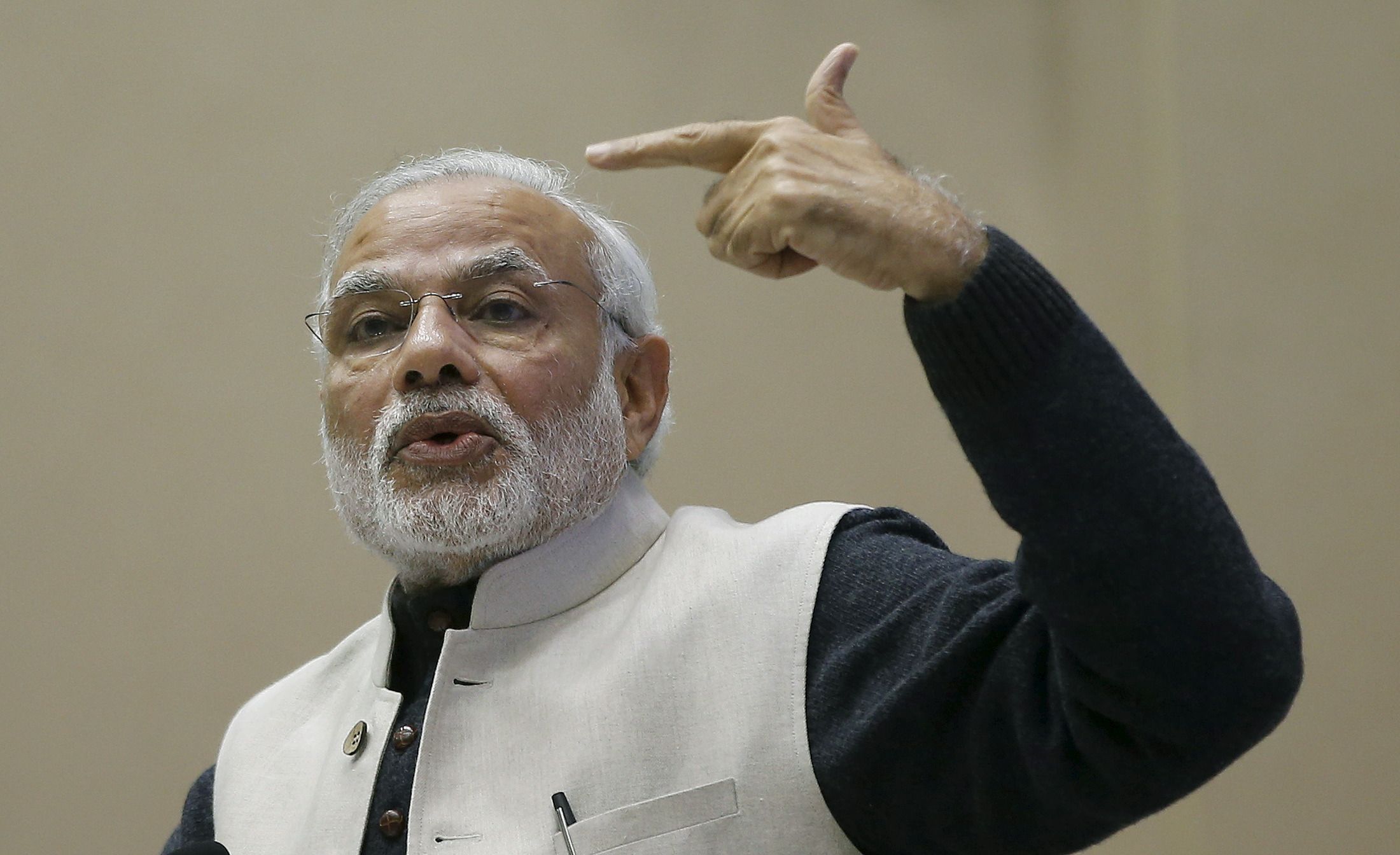
This article first appeared on the Riding The Elephant site.
Narendra Modi often hands out a sop or two during his mega speeches – announcing, for example, direct flights from foreign capitals to his home state of Gujarat, which pleases overseas Gujaratis in his audience.
On January 16 in Delhi, however, he went far further and, in a speech to a big audience of mostly young entrepreneurs, announced a swathe of much-needed incentives for new business start-ups, including tax breaks, an app that could register a new company in one day instead of several weeks, a five-year Rs8,000 crore ($1.2 billion) credit guarantee scheme and a four year Rs10,000 crore ($1.5 billion) investment fund.
So detailed were his announcements that he had to abandon his usual impromptu style of Hindi oratory and read the details from a prepared script. "The less the government is involved, the greater the progress," he then said. "Please tell us what not to do".
The audience was ecstatic, combining some of the "Modi Modi" chanted fervor of overseas Indians in the US and UK and elsewhere with appreciation that the government is at last about to tackle some of the basic problems that eager entrepreneurs run up against with India's slow moving but usually persistently unhelpful bureaucracy. Currently, many start-ups go abroad because of the hassle in India.
Called the Startup India Movement, this is the latest of a series of branded schemes launched by the Modi government. They include Make in India (aimed at job creation in manufacturing industry) , Swachh Bharat Mission (Clean India including rural toilets,) Pradhan Mantri Jan-Dhan Yojana (financial inclusion and universal banking) and Digital India (e-governance and countrywide access to internet).
Critics often say that these are primarily publicity stunts to boost Modi's image – typified by him wielding a broom for Swachh Bharat, and being lauded by a long line of top businessmen with adulatory speeches at the launch of Make in India.
That they are stunts is beyond question – such events at home and abroad are central to Modi's style of prime ministership.
The main point, however, is whether the schemes will gradually transform the way that India is run by providing access for the poor to toilets and banks, providing jobs in a revived manufacturing industry, making the internet universally accessible and opening way for India's many budding entrepreneurs to start companies – and quickly close them when they fail.
If these things happen, then Modi will have begun to achieve his aim of changing the way that India is run, opening up fresh opportunities for economic growth, job creation and poverty reduction.
The evidence so far, however, is that he is not focussed enough to make these changes happen. In particular, he has not begun to change the way that most bureaucrats work at all levels.
On Startup India , this means that civil servants and others will no doubt continue to extort bribes and raise petty problems whenever possible – despite Modi's claims to the contrary, corruption continues at all levels of government, apart maybe from the top ranks in Delhi where it does appear that bribes are rarely paid.
Modi's speech came at the end of a day-long conference in Vigyan Bhavan, Delhi's official conference centre, and was notable for the absence of India's business establishment. Instead, there were founders of start-ups such as Uber, the app-based taxi service (and Ola, its Indian equivalent), Flipkart which is India's answer to Amazon, InMobi, a mobile advertising firm, and a host of others.
Everyone called Modi "Sir," but that seemed to be youthful respect rather than middle-aged businessmen's fawning, and everyone spelt out the problems of starting-up new businesses in India. The complaints included complicated taxes, archaic regulations (such as having to keep records on employees on paper and not just in a computer), difficulties in quickly opening and closing a start-up.
That he, and Amitabh Kant, a top industry ministry bureaucrat and branding expert who organised the event, had listened in advance was shown by the string of some 20 announcements.
However, as always happens in India, the effectiveness of what Modi announced will depend on regulations and other details that have yet to be drafted, and how they are applied in practice.
For example, the application of a definition of a start-up is not clear. Whether the app-based registration of a new company will actually deliver in one day seems problematic. A three-year tax exemption also looks odd since most new businesses do not make profits in that time.
As usually happens, the ideas are good – and there has been a general welcome that a government has formally recognised start-ups as a category of business needing encouragement.
But Modi and Kant and other supporters of the announcements will have to focus more than is usual on implementation, now the adrenalin rush of the launch event is over.
John Elliott writes from New Delhi. His latest book is IMPLOSION: India's Tryst With Reality (HarperCollins, India).
Uncommon Knowledge
Newsweek is committed to challenging conventional wisdom and finding connections in the search for common ground.
Newsweek is committed to challenging conventional wisdom and finding connections in the search for common ground.
About the writer
To read how Newsweek uses AI as a newsroom tool, Click here.








